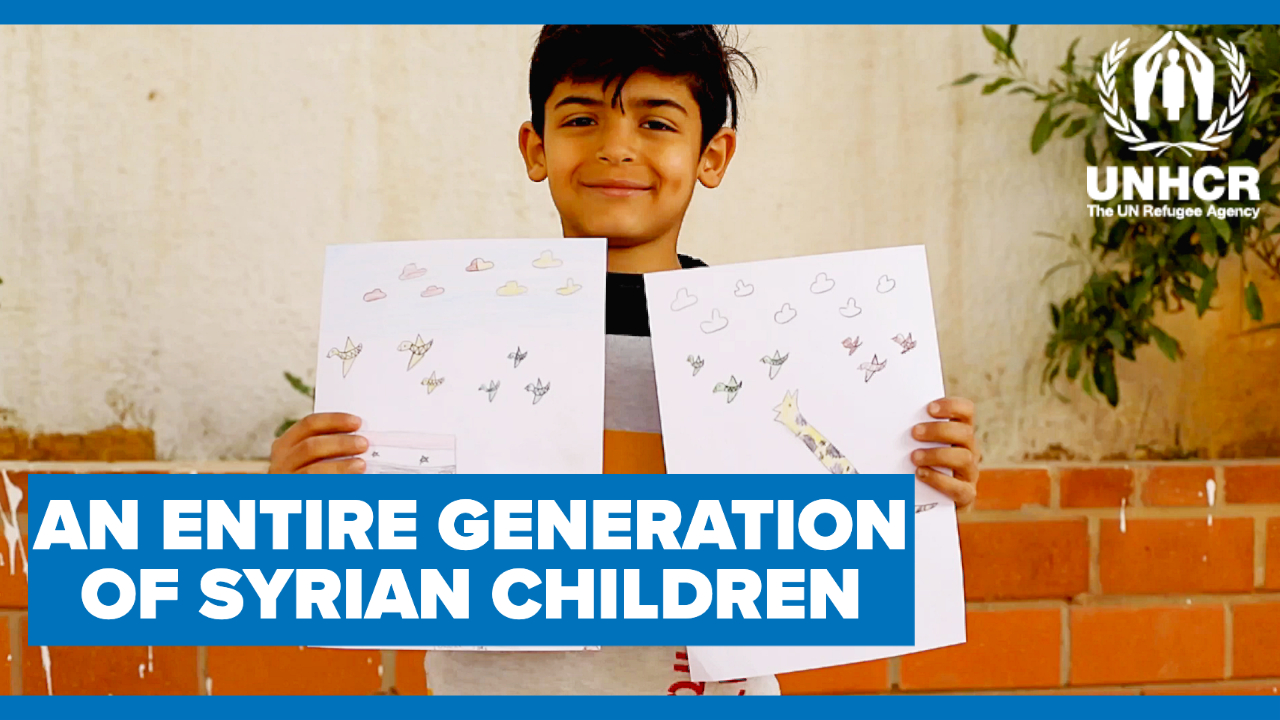Iranian refugees return from long exile in Iraq
Iranian refugees return from long exile in Iraq

AL CHARANI, Iraq, May 22 (UNHCR) - Groups of Iranian refugees who had spent six weeks in a makeshift site near the Iranian border since fleeing their settlements in eastern Iraq began crossing homewards today after the Tehran government agreed to open the frontier.
On Thursday, some 150 Iranians went home with their belongings in hand as field staff from the UN refugee agency's Basra office looked on. The returnees were received on the eastern side of the two-kilometre no man's land by Iranian government officials.
More than 350 other refugees anxious to end their decades-long exile were denied entry when they tried to return with their tractors, vehicles and livestock. Iranian authorities at the border said that livestock would not be allowed into the country, a standard practice due to veterinary health concerns.
In the past, Iranian returnees were allowed to go back with their farm machinery and vehicles, but orders were apparently not given to border officials to allow these Iranians to do so. UNHCR staff in Iraq immediately informed their colleagues in Tehran, who began making contact with officials of Iran's refugee agency (BAFIA) to resolve the issue.
Since early April, more than 500 Iranian refugees have been waiting at the Al Charani border crossing after leaving their settlements around Dujaila, Al Kumiet and Ali Al Gharbi in south-eastern Iraq. Initially, more than 1,200 Iranians had sought to leave Iraq, but when they found the frontier still closed after weeks of waiting, part of the group opted to return to Al Kumiet.
Some said they left their refugee settlements when Iraqi tribes threatened them and looted their property, while others said they had heard broadcasts on Iranian radio announcing that their country's frontier was open.
Of the more than 23,000 Iranian refugees in Iraq, over 4,500 had previously been cleared by Tehran to return home before war broke out in Iraq. It is believed that many of the Iranians who went back on Thursday were among this group previously cleared to repatriate.
In 2002, UNHCR repatriated more than 1,100 Iranian refugees from Iraq in nine convoys.
Meanwhile, insecurity in parts of Iraq continues to hamper the work of relief agencies. Staff from UNHCR's Basra office can only travel during daylight hours, driving for eight gruelling hours to monitor borders at locations like Al Charani. Troops from Britain's armed forces were also present at the border crossing to ensure security at the remote site.
Elsewhere along the frontier separating Iran and Iraq, another group of 19 Iraqis are waiting at the Shiramsheh border crossing for the green light from Iran to go back. Eighty Iranian refugees who also fled their homes due to insecurity and threats from Iraqis are currently sheltered in a transit centre on the outskirts of Basra as UNHCR organises their repatriation.
In order to enhance relations between locals and the Iranian refugees, a joint mission from UNHCR and the UN World Food Programme visited Dujaila earlier this week, where aid workers want to distribute food to both the host community and the Iranians. Already, medical stocks from the World Health Organisation have been distributed in the area, and UNHCR has made arrangements with a local contractor to upgrade water facilities serving the Iranian settlements.







